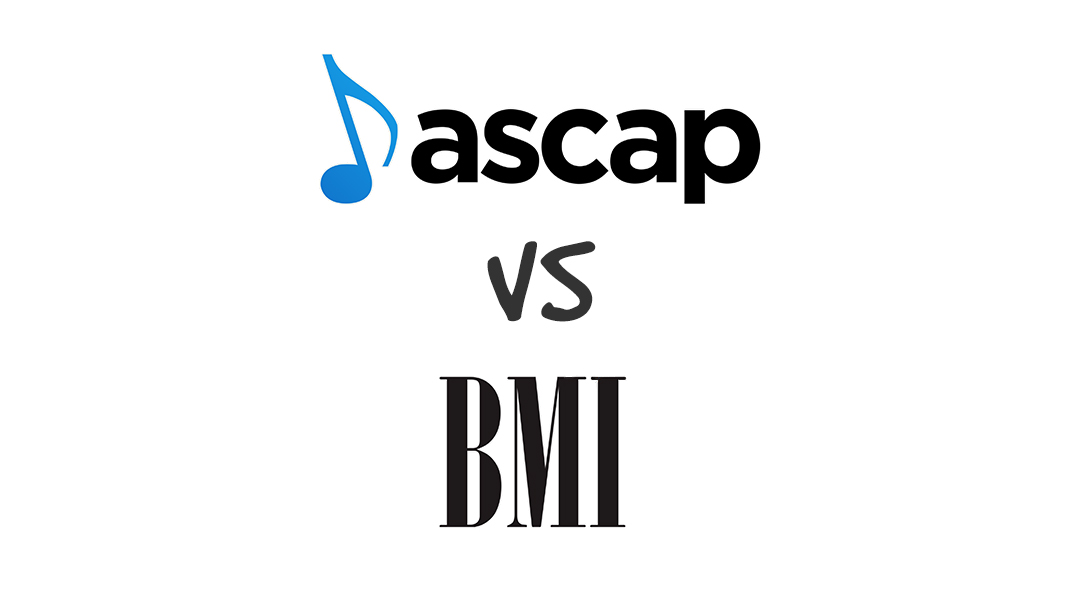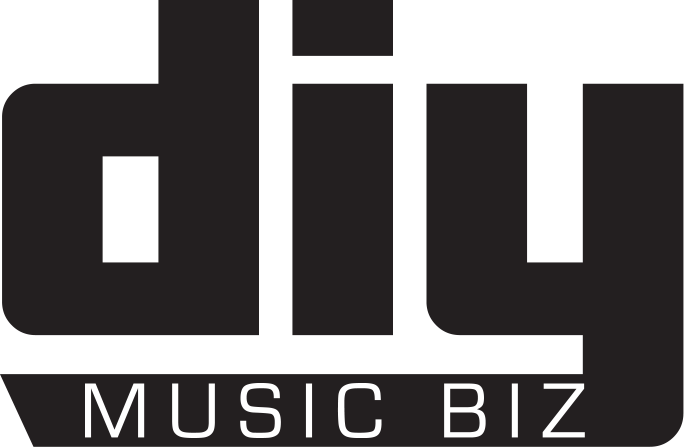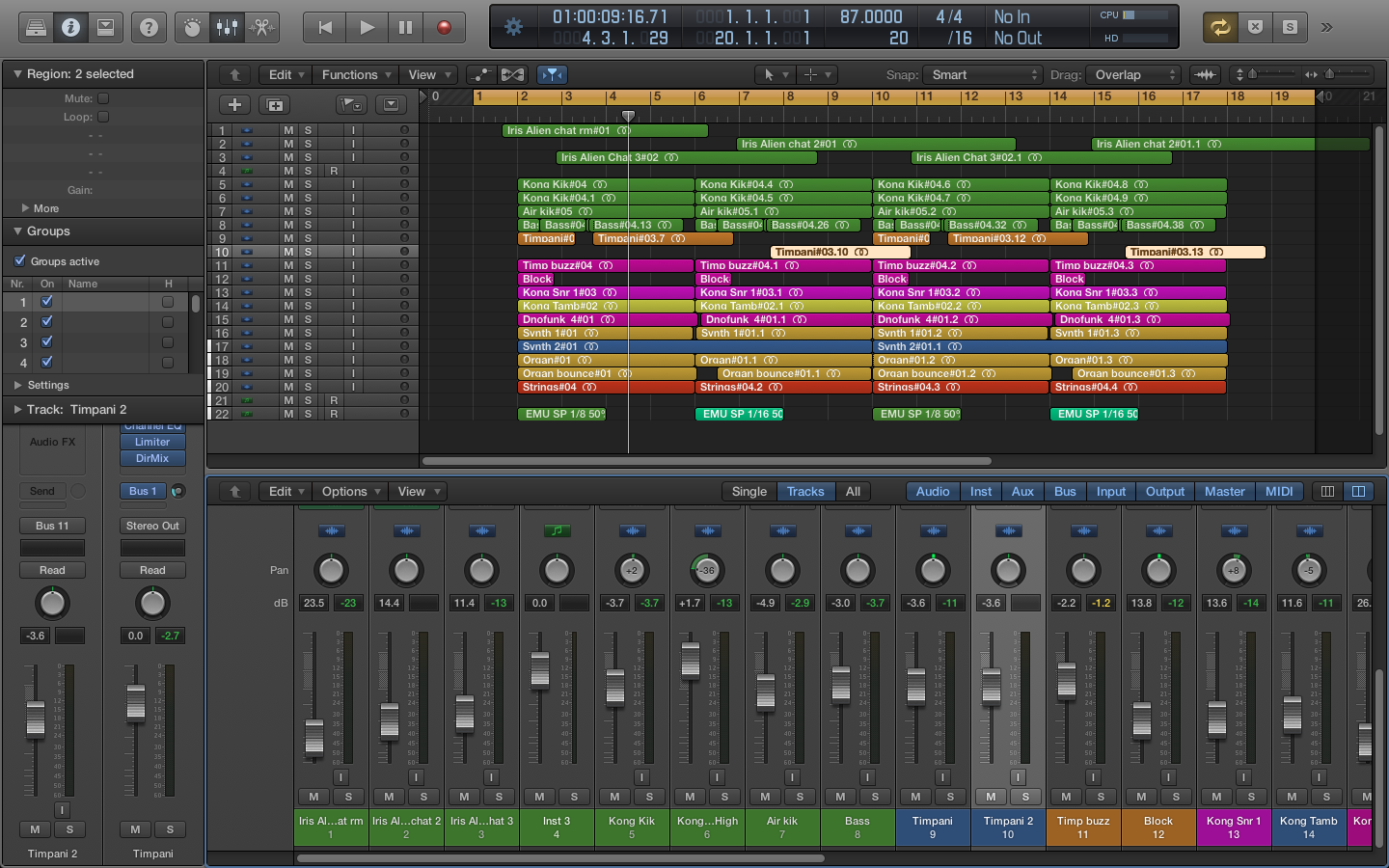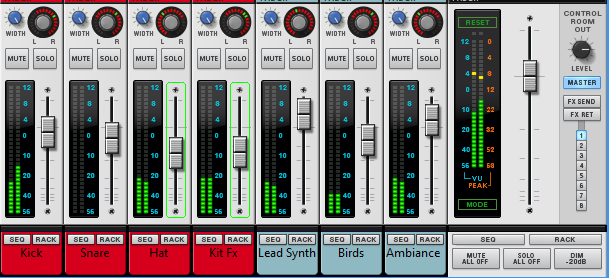ASCAP or BMI, which is better? 2023 This is a popular question amongst many artists, producers, and songwriters, especially those who are new to the business side of music.
Quick P.R.O. Cliff Notes: ASCAP vs BMI vs SESAC
| Aspect | ASCAP | BMI | SESAC |
|---|---|---|---|
| Size of Catalog | Over 11.5 million musical works | Over 17 million musical works | Over 1 million musical works |
| Membership | Over 790,000 members | Over 1 million members | Over 30,000 members |
| Licensing | Licenses music to a wide range of businesses, including radio and TV stations, concert venues, and streaming services. | Licenses music to a wide range of businesses, including radio and TV stations, concert venues, and streaming services. | Licenses music to a wide ranges of business similar to ASCAP and BMI. |
| Royalties | Pays out royalties to members for performances of their music on TV, radio, and other media, as well as live performances. | Pays out royalties to members for performances of their music on TV, radio, and other media, as well as live performances. | Pays out royalties to members for performances of their music on TV, radio, and other media, as well as live performances. |
| Membership fees | Free for all new writers and writer/publisher accounts $50 fee for solo publisher account | No free for writers one time fee ($150) for publishers and $250 for partnerships | Invitation-only membership with a $50 application fee and annual dues. |
| Notable members | Beyonce, Taylor Swift, Stevie Wonder | Lady Gaga, Maroon 5, Dolly Parton | Kenny Rogers, Margo Price, Burna Boy, Rush, Jack Harlow |
Here’s what generally happens:
As a music maker, you may have stumbled across an article, video, or some type of seminar that spoke about an artist or producer getting their music placed within Film or TV, sometimes even video games. Often coined ‘sync or music licensing.
From there, you conduct research and find that you need to be signed up with a Performance Rights Organization (PRO) in order to get collect royalty payments. That research will lead you to 3 (or 4) organizations:
- BMI: For Profit
- ASCAP: Non-Profit
- SESAC: For Profit
- GMR: For Profit
All of these Performing Rights Organizations do the exact same thing, but slightly different. In this post, we’ll focus on the two music makers are most likely to sign up with, and that’s BMI or ASCAP. Both GMR and SESAC are invite-only at the time of this writing.
In short, you’ll need one in order to get paid/collect performance royalties.
Your next question is:
Which One Is The Best, BMI or ASCAP?
So you continue researching only to find yourself confused by the hundreds of articles and debates involving the two organizations, but no definitive answer on which PRO is better between ASCAP and BMI. Does this sound familiar?
Here’s Why:
They don’t know! In order to have a semi-accurate answer, they’d need to track a broad portion of users from both PROs (which isn’t realistic). Data is needed, such as:
- The number of gigs played
- Which venues
- Times cue sheets were sent
- Radio Stations
- TV/Film companies that licensed the music
- Times of airplay
- Length of airplay
- etc
All those factors make a huge difference, and without them, online debates end up being a waste of time.
Now, the intent of this post is not to start another debate, but to educate, giving you what you need to make your own decision.
Before I go into the Pros and Cons of each P.R.O., I’ll explain what a Performing Rights Organization is and why you need to be signed up with one.
What Is a Performing Rights Organization?
A Performing Rights Organization (PRO for short) is a company whose sole purpose is to collect its member’s royalties. These members consist of artists, composers, producers, publishers, etc.
Once the royalties are collected, the PRO takes their fee and then sends the remaining amount to its members:
- Songwriters: The writer of the song
- Music Composers: The writer of the music
- Song Publishers: The songwriter by default, unless a third party Publisher is appointed
- Publishing Companies: Can be the writer, but oftentimes is a 3rd party company
- Etc
Who Do ASCAP and BMI Collect Royalties From?
ASCAP & BMI collect royalties from establishments like Retail Stores, TV Networks, Video Game companies, Film Companies, Restaurant Chains, and any other franchise that uses music.
The method of tracking this activity is done through the use of cue sheets and digital monitoring.
What Are Cue Sheets?
Cue sheets are documents that list the songs used, the song’s owner, the duration of use, the user, and other details.
It’s similar to an invoice. Once that cue sheet is filled out, it has to be sent to the respective PRO(s). Pretty high-tech tracking method, right?
Unfortunately, these aren’t 100% accurate. People make clerical errors all the time (you can easily correct them), and some licensees (users) might delay sending their sheets, which can delay Royalty Payments. It’s a headache at times, but this is how the Music Business works.
Feel free to ask me any question(s) you may have about PROs and how they operate, this is an ever-changing field, and some things can be complicated.
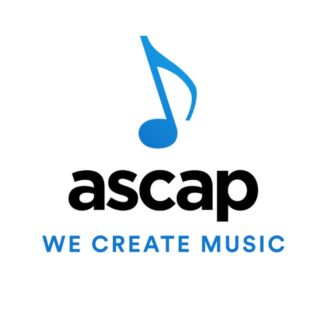 What Is ASCAP? Who Are They?
What Is ASCAP? Who Are They?
ASCAP stands for “American Society of Composers, Authors, and Publishers”. It’s a performing rights organization that contains over 700,000 members throughout the United States. ASCAP was created in 1914 by a group of writers/composers and, to this day, is still operated by its own members. In fact, it’s the only PRO in the US that is run by its members, and board members are elected from within.
ASCAP’s primary goal is to make sure its members are compensated for the use of their creations (MUSIC in our case).
Some of the biggest artists and producers in the music industry are affiliated with ASCAP.
Here’s a short list of ASCAP Members:
- Lil Baby
- Usher
- Cardi B
- Petey Pablo
- Bruno Mars
- Max Martin
- The Weekend
- Shanice
- Jermaine Dupree
- BTS
- Bad Bunny
- Dua Lipa
- Ryan Tedder
and countless others.
How Much Does ASCAP Cost?
Joining ASCAP as a writer is now free for all new members. If you decide to join as both a writer and a publisher simultaneously, ASCAP will waive both application fees, which is a great benefit.
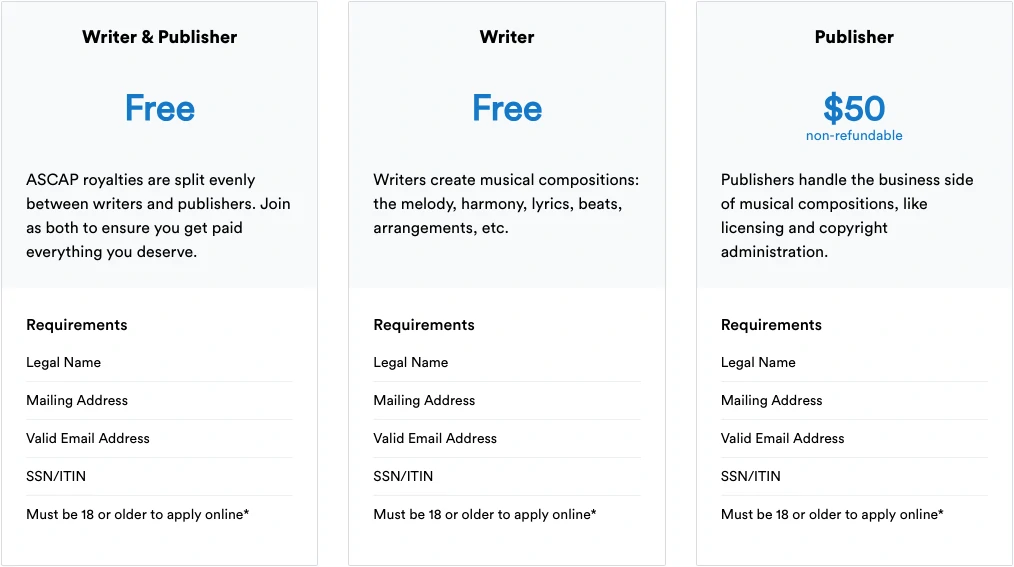
However, if you only join as a publisher, there is a one time $50 application fee (non-refundable). This is a significant change from the previous membership fees of $50.00 for a writer or publisher ($100 for both).
The previous fees were expensive for many aspiring music creators, especially considering other expenses such as recording time and studio gear. This updated pricing alleviates some of that financial burden.
Remember, any fees you pay can be a tax write off if you have your business set up correctly and have a good tax professional in your corner.
Benefits Of Being An ASCAP Member
There are a lot of good benefits to being a member of ASCAP, such as hotel discounts, medical insurance, gear insurance, gear discounts (fun), etc. The most beneficial perk IMO would be the WORKSHOPS. I like to flash my ASCAP card whenever I rent a car, go on vacation, check into a luxury hotel, etc (discounts, baby).
Some places know about your discount, and others don’t, so you’ll have to educate them.
ASCAP Workshops & Conventions Great Places To Network
What I love about these workshops is the people! You get to network and shake hands with a lot of people in the music industry. The panelist generally has a lot of great knowledge to share, but depending on who the panelists are, it does make a difference.
I remember the 1st convention I went to, I met a young woman (16yrs old) who made a living scoring video games and placing music in TV commercials.
She had over 1,000 placements, knew no music theory, and did everything using SONY ACID and her laptop. Most of the room was full of people just like her (of all ages), and I hadn’t heard of any of them!
They weren’t superstar musicians/writers, but they pulled in a good income doing what they loved, making music.
Cons Of Being An ASCAP Member
Here is where things get sticky. How could anyone have anything bad to say about a company set out to ensure that you get paid? Well, unfortunately, ASCAP pays based on a ‘sample survey’.
Sample Survey: Meaning if your music wasn’t utilized when they conducted their survey, you don’t get paid for the music placement(s).
This would be the equivalent of clocking into work, your manager sees you working but doesn’t pay you because he didn’t witness you clock in when he did his rounds.
Labels as its Board Members: That’s right, ASCAP has a lot of labels on its board.
Won’t Pay Publishing: Unless you have a publisher’s account
I hope ASCAP changes this in the future, as it’s a great disservice to their members… Especially us music creators who aren’t superstars.
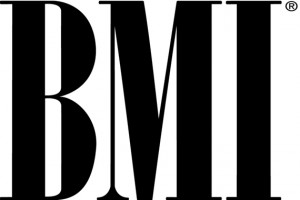 What Is BMI & Who Are They?
What Is BMI & Who Are They?
Broadcast Music Inc, also known as BMI, started in 1939 as a competitor and alternative to other performing rights organizations. BMI has over 500,000 members within its organization and is continuing to grow. Like other PROs, BMI collects royalties, takes a small percentage, and sends the rest to the member(s).
Some popular writers associated with this organization are
- Lil Wayne
- Blueface
- Toni Braxton
- Maroon 5
- Britney Spears
- Eminem
- Birdman
- Dolly Parton
- Linkin Park
- Kid Rock
- Janet Jackson
- Sam Cooke
- R. Kelly
and many others
Is BMI Free, Or Does It Cost Money?
BMI is free if you’re signing up as a writer: Singer-songwriter, Producer, or Music Composer. To sign up as a publisher with BMI, you’re looking at paying $150.00.
Is the $150.00 worth it? It’s worth it if you plan on sticking with them or starting your own Publishing Company to represent other writers. Don’t pick the company based on price; pick the company based on what it can do for you. And remember, fees are tax-deductible.
BMI Benefits Are They Worth It?
BMI offers some pretty nice benefits such as discounted services, insurance, education, healthcare plans, financial assistance, and so on. If you’d like a complete detailed list of benefits, head over to BMI and take a look.
Amongst the many benefits BMI offers, the #1 that stands out to me is the conventions. Like ASCAP, their conventions are informative and a great place to network. Over the years, I have found BMI’s conventions to be a little bit better.
In my opinion, the only thing(s) you should be looking forward to is shaking hands, meeting new people, and getting a different outlook on the business.
You’ll want to have a business card, dress to impress, and have an open mind. Remember, most people at these conventions are where you’re trying to be (depending on your level of experience), so attend as many as you possibly can.
The 1st time I went to a BMI convention, I was unprepared. I didn’t have any business cards, a website, or anything. I wasn’t even dressed comfortably, but that didn’t stop me from making connections.
Royalty Payments Who Pays More ASCAP Or BMI?
BMI pays more for the most part, especially if you’re working in Sync Licensing. I find that BMI has further reach when it comes to collecting money in other countries as well.
I find BMI also pays more than ASCAP when it comes to Urban music. I have no idea why this. I’ve spoken with publishers about this as well, and they, too confirm this.
I’ve collaborated with other writers of the opposing PRO affiliation, and sometimes we’re paid the same, other times we aren’t. What’s really upsetting is when the BMI affiliate gets paid, and the ASCAP affiliate doesn’t due to the ‘Sample Survey’ mentioned above.
Long story short, BMI pays more than ASCAP.
Who Pays Faster ASCAP Or BMI?
They send out payments every quarter. However, BMI pays the Writer and Publisher share at the same time, allowing you to easily compare data, income, etc. ASCAP staggers your payments Writer and Publisher Royalty Payments (not at the same time).
I find that BMI pays faster and even a day or two ahead of schedule.
Which P.R.O. IS Easier To Sign Up With ASCAP or BMI?
The signup process for both of these companies takes a few minutes to do on their websites. It will take a couple of weeks to a month to receive your packets in the mail.
When I signed up for BMI, I got a membership packet in the mail 3 to 6 weeks after filing. With ASCAP, I got my membership packet in the mail within 1-2 weeks. Once you pay for the membership, you’re a member right then and there, given that all the criteria you present is correct.
The fastest way to make a payment is by using a credit card. I had a session player who mailed in a money order, and he didn’t get his membership activated for close to 3 months, it was a bit ridiculous.
Can You Use BMI and ASCAP At The Same Time?
Yes, if you’re a Music Publisher and or have a separate entity. This way, you can sign with one, and the entity can sign up for the other.
If you’re planning on functioning as a publisher, you’ll want to have publishing accounts with both (all PROS, really); otherwise, you’ll be missing out on Publishing Royalties.
Signing up for both Performing Rights Organizations would be an effective way of seeing which paid more (BMI or ASCAP).
So Which PRO Is Better ASCAP or BMI?
This is going to come down to personal preference. They both do the same exact same thing, which is “making sure you’re compensated for your work” (when it’s used). One does it better, in my opinion (BMI).
BMI is cheaper for a writer, but ASCAP is cheaper in the long run (if you look at it as a whole).
Both organizations have workshops and benefits, but in my experience, ASCAP has more workshops, while BMI has better. That was a huge thing for me when I was looking for which one to join. I like learning and networking.
ASCAP has the upper hand when it comes to cue sheets as they tend to supply cue sheets frequently, and you know what’s coming down the pipeline, but they don’t always pay… Something to think about. Again, that Sample Survey BS.
Most of my contacts in the music industry tell people to go with BMI, and I would advise the same.
ASCAP or BMI 2023 Closing Statements
What’s important is that you affiliate with a Performance Rights Organization to collect Royalties. Which one you choose to affiliate with is a personal decision. I can only share my experience(s) as a composer, not a gigging musician, so definitely conduct your research before choosing one.
Now, if you want to get into Sync Licensing, please check out my Music Licensing Case Study. It’s helped 12,000+ music makers jump into Licensing, and many make a pretty good living. It’s also a lot easier now than it was when I started.
If you’ve found this post beneficial, please share it.
ASCAP or BMI: Common Questions When Choosing Between Them
Is BMI A Non-Profit Or For Profit Company?
BMI is now ‘for profit’ as of October 2022
Can BMI Writers Have A Publisher Account With ASCAP?
Yes, BMI writers can have an ASCAP publisher account, as well as publisher accounts with other PROS (all at the same time).
Does ASCAP or BMI Copyright Your Music?
No, PROs are responsible for collecting your royalties. Copyright is active the moment your music is in tangible form.
Is ASCAP or BMI Necessary For Beat Makers?
PROs like ASCAP and BMI are necessary for songwriters and composers (artists as well) who want to collect royalties from their music.
What Is A Publisher?
A music publisher plays an essential role for music creators, acting as a bridge between them and the end licensors (clients). They manage tasks such as overseeing song catalogs, P.R.O. song registration, negotiating licensing deals, and identifying opportunities to monetize songs.
Do ASCAP or BMI Only Cover The USA?
BMI and ASCAP are US based but have global partnerships. This helps provide wider coverage and more money for their members.
Can I Switch From ASCAP to BMI Or Vice Versa?
Sure thing! You can switch, but you’ll need to wait until your membership ends. Then, file some paperwork and endure a waiting period. Once you complete the process, they’ll confirm your new membership. Keep track of all documents.

